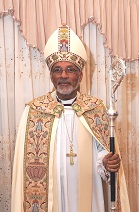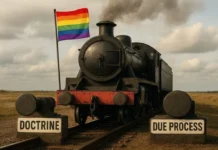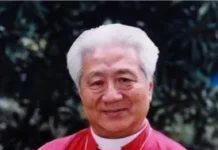The Bishop of Jamaica has offered a mixed message on the morality of abortion. Speaking to the 149th synod of the Diocese of Jamaica and the Cayman Islands last week at St James parish in Montego Bay, the Rt. Rev. & Hon. Howard Gregory said: “The church forbids abortion as a means of birth control, family planning, sex selection, or for any reason of mere convenience.”
But he then clarified his comments, citing permissible exceptions to this rule — and chiding traditionalists for their unyielding position of opposition to abortion. Those who were “doctrinaire on the sanctity of life when the issue of abortion comes up”, but supported capital punishment, could not call themselves pro-life.
Abortion is illegal in Jamaica except to save a woman’s life or preserve her physical or mental health under a law dating back to 1864. However, the World Health Organization estimated in 2011 there were more than 22,000 abortions on the island of some 2.8 million people.
However, there has been a push by abortion activists to loosen the nation’s abortion laws. Last year Juliet Cuthbert-Flynn MP presented a private member’s motion proposing the decriminalisation of abortion and its replacement by a civil law setting out the conditions under which women would be able to terminate pregnancy. Under Jamaican Statutory law a woman can be sentenced to life imprisonment for attempting to terminate a pregnancy, and accomplices may be jailed for up to three years, though there have been no prosecutions of women procuring abortions in the modern era.
Parliamentary hearings on abortion began in February, prompting the comments by Bishop Gregory at last week’s meeting of synod. The bishop upheld the traditional moral teaching on abortion telling the 100 clergy and 118 lay delegates gathered under the theme “Intentional Disciples: Instruments of Grace and Hope’ from 23-26 April 2019 at the Holiday Inn Resort, Rose Hall.
However he added some qualifications saying abortion was permissible “cases of rape or incest, cases in which a mother’s physical or mental health is at risk, or cases involving foetal abnormalities”.
The bishop appeared to undercut his preliminary remarks by noting that morality was situational. While condemning abortion: “At the same time, the church takes seriously the crucial role which a woman plays in the decision-making process, and who must be accorded due consideration and respect.”
Grace is “not just about a word spoken or a law invoked, but an attitude and vantage point from which we approach human beings wrestling with the fundamental and complicated issues of life”, Bishop Gregory said.
He likened the plight of women considering abortions to previous generation of women who gave birth to children outside of wedlock. Society had at one time given these children the “dishonourable status of illegitimate” He added that, “these same mothers, who constitute a significant part of our congregations, can still only yearn for the day when they, like Lazarus, will be able to receive of the crumbs of the Lord’s table”.




“Those who were “doctrinaire on the sanctity of life when the issue of abortion comes up”, but supported capital punishment, could not call themselves pro-life.”
I guess he doesn’t have the bandwidth to figure out the obvious distinction between a mother murdering an utterly innocent child vs. a criminal who has presumably had the opportunity to defend themselves against accusations.